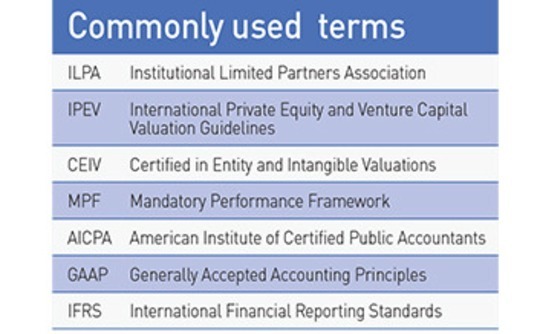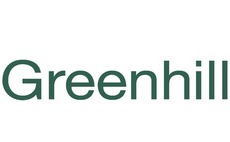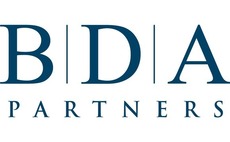
Valuation standards: Counting their blessings

Asian GPs’ portfolio valuation practices remain largely opaque, despite the value of standard frameworks. LP demand will be key to moving the industry in a more transparent direction
Even for the most experienced GPs, valuing a private equity portfolio can be intimidating. Unlike public market investors, who can calculate the current worth of their holdings relatively easily based on publicly available information, valuing a privately-held company requires accounting for a range of factors that portfolio companies might be reluctant to reveal – particularly in Asia, where minority growth deals remain the dominant transaction type.
Faced with this reality, many LPs wonder why they should bother with enforcing valuation requirements at all when their returns won't come until after the investments are exited anyway and the process could put a drain on a GP's resources that would be better spent managing the portfolio. However, valuation professionals warn that this belief can be short-sighted.
"It's true, what they receive at the end is very important. But that misses all of the other reasons why they need to monitor their GPs along the way," says David Larsen, a managing director of valuation services at Duff & Phelps. "For instance, they may have to make decisions as to whether to invest in a follow-on fund before the first fund is finished. So sometimes what the LP says it wants is not what the LP needs."
Even fund managers and institutional investors that acknowledge the importance of valuation monitoring face the question of how to approach the task. Though there are industry guidelines, it can be difficult to know how and when to apply them, and the quality of the information used to generate the valuation may also be called into question depending on its source.
Due to these concerns, industry observers in Asia say portfolio valuation requirements are often honored in the breach, with LPs and GPs professing their acceptance of the standards in principle but neglecting to follow through on their application. This can be changed, if LPs are willing to put their foot down and exercise the leverage they have with their fund managers.
Off the leash
When asked why a GP might neglect to follow portfolio valuation standards rigorously, many point to LPs, who are often perceived as keeping the reins slack to give their managers greater freedom. This is ironic, because LPs are considered the main beneficiary when PE firms are compelled to report an accurate valuation. It allows them to evaluate the health of their holdings against other asset classes and in turn exercise their fiduciary duties to stakeholders.
Indeed, standard accounting practices such as US GAAP and IFRS often require LPs to report their investments on the basis of fair value – described as the price that would be received for selling an asset, or paid to transfer a liability, in an orderly transaction between market participants at the measurement date. Fair value is also recommended by the Institutional Limited Partners Association (ILPA).
However, in practice the valuation methodology is determined by the limited partnership agreement. Investors in Asian funds do not always require investees to submit to industry standard frameworks such as the International Private Equity & Venture Capital Valuation Guidelines (IPEV).
IPEV, which was first introduced in 2005 and has gone through several revisions since, is regarded as the most comprehensive guide to valuing PE-backed companies and, by extension, entire portfolios. The framework prescribes a series of steps for GPs and their auditors to determine the most likely sale price of an investee company at the date of assessment.

Auditors following IPEV begin with the theoretical valuation of the company assessed to the best of their ability based on industry trends, publicly available information and other disclosures, and adjust for factors that a buyer might take into consideration such as surplus assets or excess liabilities. Debts that might need to be paid in a sale are then factored in, and the valuation is then allocated depending on the size of the firm's stake.
Many industry participants see this as a reasonable process in theory. The practicalities are more challenging. In particular, GPs fear that auditors who are unfamiliar with the PE model, the risks it involves and the need for confidentiality might unfairly undervalue their portfolios.
"GPs often have widely divergent views on these guidelines. Some point to inherent difficulties in terms of adopting standards across an industry operating under very different business models and investment types. On top of that, best practice is open for interpretation, because some standards cannot apply to every circumstance," says Usman Tariq, director of fund services at Vistra Group. "There are also commercial sensitivities that might prevent the GPs from disclosing valuation assumptions."
In the absence of such a framework, many GPs prefer to simply mark their investments at the purchase price, reasoning that LPs will accept this as a compromise that they can pass along in their own valuation reports and reconcile with the actual price at the time the asset is sold. They can also use the purchase price as a baseline for calculating the valuation at a later date, which can save time compared to valuing the companies from the ground up each time.
Fast and loose
While LPs might prefer that GPs commit to a more rigorous process, in practice fund managers that prefer not to do so have faced little difficulty in subsequent fundraising. Some observers attribute this trend to investors' eagerness to gain access to Asian funds, particularly on the venture capital side, where potential returns are perceived as worth the risk.
"While a lot of the standards are applied more robustly in Europe and the US, I think that many GPs are given more leeway in Asia, where the reporting is less transparent than it might be elsewhere," says Alex Traub, regional executive for Asia Pacific at Alter Domus. "That's partly due to the fact that there is high demand for what a lot of these GPs do, and it is quite specific."
Whether an LP will enforce the use of industry standards is seen primarily as a function of its size: larger institutional investors, such as pension funds and sovereign wealth funds, may insist on strict adherence to an established framework to demonstrate their own best practice. Family offices and other smaller investors, which have fewer stakeholders to satisfy, are more likely to let their GPs slide when it comes to compliance.
Valuation specialists say that while GPs may be able to get away with this for now, they cannot count on LPs being so lenient forever. Managers that want to graduate to larger fund sizes may find themselves targeting a new crop of investors that demand greater transparency around valuation as part of the price for writing a bigger check.
In addition, determining an accurate valuation does not only benefit LPs. GPs themselves may find that a robust assessment of their portfolios by a third party can serve as a check on the temptation to overstate their value. Portfolio companies may also fall victim to this tendency and provide GPs with optimistic self-assessments. Having a robust, independent valuation specialist can insulate investors and give them a more accurate picture of the portfolio's performance.
"We often have that kind of argument with our clients: they think they bought something very cheaply, and six months down the road they want to mark the asset up," says Robert Kwok, a managing director for transaction advisory services at EY. "We have to say, ‘Hang on a moment – you bought at fair market value, and the market hasn't changed that much.'"
LPs are also aware of these factors, which can further justify requests that GPs follow industry guidelines. Indeed, some observers feel that the valuation itself matters less to LPs than the perception that fund managers are aware of its importance and willing to put in the effort to make sure they provide their investors with the best information.
"LPs are looking for robust valuation processes that can validate their capital allocation process, and they expect their GPs to adopt a transparent valuation methodology that is deliberated and discussed," says Vistra's Tariq. "After that's done there's an expectation that the agreed valuation methodology will be consistently applied month after month and quarter after quarter."
An inevitable shift
Industry participants believe that due to these factors the Asia market overall is likely to shift toward greater transparency. Though there will likely always be room at the small end of the fundraising scale for GPs that operate without formal valuation methodologies, managers that wish to tap a broader LP base will need to demonstrate a minimum level of professionalism.
Additional pressure is also likely to come as valuation standards improve, and as new frameworks are introduced like the American Institute of Certified Public Accountants' (AICPA) Certified in Entity and Intangible Valuations (CEIV) credential. It is slated for introduction this year and is intended to supplement IPEV with recommendations about the specific supporting documentation to be cited by valuation professionals in their reports.
"It's good to see the frameworks continually being updated to keep abreast of the latest methodologies and accounting principles, and to see education and continuous professional development requirements for those involved in performing valuations being formalized, like the CEIV," says Aisling Keane, senior vice president and head of alternative investment solutions for Asia Pacific at State Street.
Adopting a new valuation regime may lead to growing pains on the part of some GPs, but observers believe fund managers whose hearts are in the right place ultimately have little to fear. Firms that respect their LPs and are willing to put their interests first should find that only need to make minor adjustments to bring their practices into line with requirements.
"I think that most GPs who want to do the right thing can. If a GP is doing a good job, then the management will have regular meetings to discuss every one of their investments and what they need to do to them to enhance value," says Larsen of Duff & Phelps. "So it's really just a bit more rigor around what they're already doing, not some huge paradigm shift."
SIDEBAR: CEIV: The new order
Since 2013 the American Institute of Certified Public Accountants (AICPA) has offered the so-called "cheap stock" guide as its main reference for valuation professionals. But in recent years the body became concerned that this document – formally titled "Valuation of Privately Held Company Equity Securities Issued as Compensation" – was being misused.
"For lack of better guidance, a number of people were trying to apply that guide to the private equity and venture capital industry," recalls Yelena Mishkevich, a senior manager for accounting standards at AICPA. "But a number of people felt very strongly that this was not appropriate, because while there are a lot of similarities, there are also differences."
The problem was that the cheap stock guide was intended for a fundamentally different purpose – valuing stock-based compensation – to the main private equity use cases. For instance, the basic unit of valuation for the cheap stock guide was a single share. This caused difficulties when valuation professionals working for private equity firms tried to calculate the value of a GP's overall stake, accounting for differing markets and the time of investment.
AICPA's answer is the Mandatory Performance Framework (MPF), a new set of guidelines specifically tailored to the private equity and venture capital industry. In addition to addressing the shortcomings of the cheap stock guide, MPF and the Certified in Entity & Intangible Valuations (CEIV) credential – which will be made available for public comment next month – are intended to fill an important shortfall in the valuation industry that has long vexed PE professionals.
"A major concern in the industry up to this point has been that many of the assumptions behind the work that valuation professionals do weren't put into their reports or the supporting papers," says Mark Smith, lead manager of forensic and valuation services at AICPA. "So auditors, GPs and LPs were often left with a lot of questions that they would have to go back to the valuation professionals to answer."
The resulting emphasis of the MPF and CEIV on proper documentation is expected to help the new guidelines serve as a complement to the industry standard framework of IPEV, which focuses on the steps of valuation.
Another point of differentiation with existing guidelines is AICPA's attention to detail in the form of examples based on real situations and written by a team of contributors from the PE industry. In contrast to IPEV's more principles-based approach, which is aimed at auditors with some experience in PE, these case studies are seen as a way to introduce the topic to valuation professionals who might be new to the industry.
"The cheap stock guide did have an appendix with, I think, two examples. But here we're going to have 15 examples to cover different aspects," says Mishkevich. "They are really intended to be helpful for people to understand how to reason through situations, and how to apply the guidance that's covered in the rest of the guide."
Latest News
Asian GPs slow implementation of ESG policies - survey
Asia-based private equity firms are assigning more dedicated resources to environment, social, and governance (ESG) programmes, but policy changes have slowed in the past 12 months, in part due to concerns raised internally and by LPs, according to a...
Singapore fintech start-up LXA gets $10m seed round
New Enterprise Associates (NEA) has led a USD 10m seed round for Singapore’s LXA, a financial technology start-up launched by a former Asia senior executive at The Blackstone Group.
India's InCred announces $60m round, claims unicorn status
Indian non-bank lender InCred Financial Services said it has received INR 5bn (USD 60m) at a valuation of at least USD 1bn from unnamed investors including “a global private equity fund.”
Insight leads $50m round for Australia's Roller
Insight Partners has led a USD 50m round for Australia’s Roller, a venue management software provider specializing in family fun parks.







